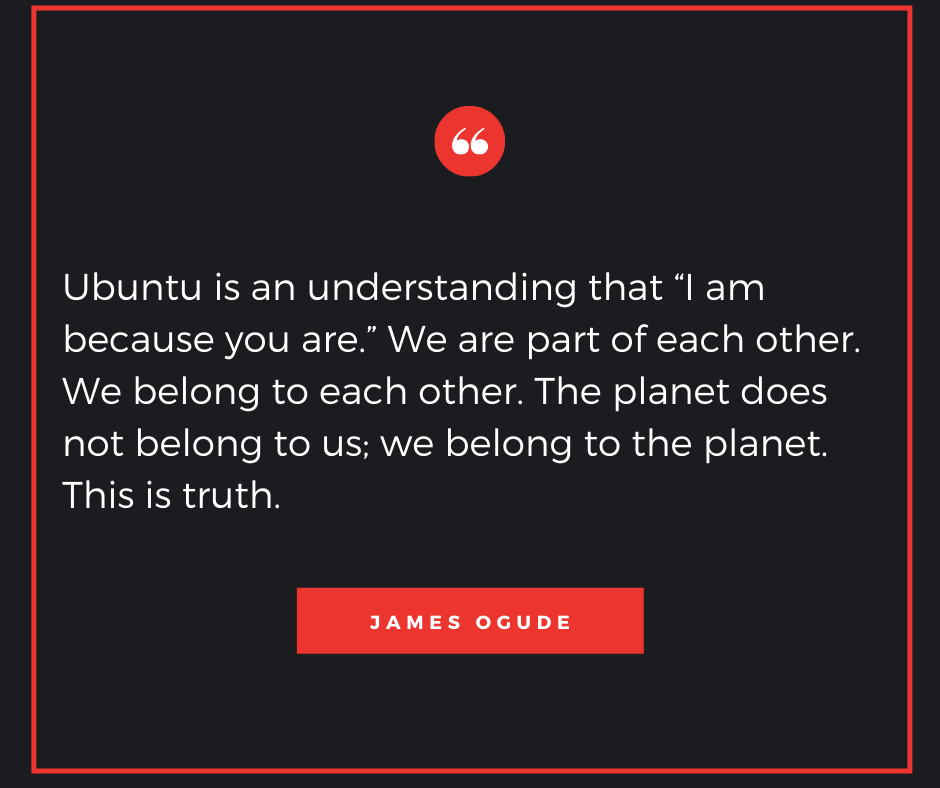Lenten Reflection on the Sin of Individualism
The Greek philosopher Aristotle believed the human animal is a political animal. He meant that we are a communal species, formed in the “polis,” through interaction with each other. Those who set themselves outside of the polis were “idios,” things unto themselves. He used the word from which the English word “idiot” was derived.
In every major religious tradition, there are stories about creation and the place of humankind in creation. In no story of which I’m aware are human beings created to be in competition with each other, with the winners keeping more and more of the planet’s goods.
In the creation stories best known among Christians and Jews, human beings were created for relationship with God, each other, other living beings, and the planet. We are created to love God and each other. Following many Christian theologians, I believe justice is the expression of love at a societal level. In Jesus’ parables, anyone who harvests a miraculous crop yield and thinks they are entitled to keep it all are, well, idiots (see Luke 12:16-21).
If we were made for relationship, if the nature of humanity is communal, then individualism is sin. (Life lived in contradiction to which we were made is my understanding of sin.)
My, do we live in a sinful world.
In Oklahoma, we are not our siblings’ keepers. Our elected leaders push highly individualistic policies. The governor cheers for individual businesses over communal good and an ethic of personal responsibility that seems to mean, “I’ll do what I choose to protect my freedom and you can live with my choice.” The pressure for giving tax dollars to individuals to use for private schools (in a state where most of the rural population does not have private schools), a move really meant to disintegrate public education, arises more frequently in Oklahoma than the villain in horror movies who should be dead keeps re-emerging for another battle.
In ancient Israel when the tribes were newly confederated, in states of emergency, tribes sometimes went their separate ways. “Israel to your tents!” was the cry to disperse. In Oklahoma, we live in a constant state of “Israel, to your tents.”
Is living this way not a violation of human nature?
In recent days, we’ve been horrified and angered at the invasion of Ukraine. But the actions taken by nations and corporations to restrict Mr. Putin’s resources are telling for how connected the world actually is. From the pandemic restrictions, the importance of everyone in supply chains was, at least temporarily, in our attention. Now, we see how the world’s banks and information platforms connect nations with a rich web of crisscrossing channels and relationships.
If only more of this web of relationship could reside in our attention permanently. This week, a new climate study is out. The news is awful. We’ve been told again and again: “Time is running out. If we care about others today, and if we can about our descendants, take systemic action NOW!” But the world’s nations, perhaps especially the one in which we live, is still acting as if it is okay for each to make their own decisions.
Yesterday, an Oklahoma congressman sent a letter to President Biden. It is a respectful letter focusing mostly on the need to support Ukraine by upping the U.S. defense budget. The congressman also criticized the president for “vilifying” the fossil fuel industries. Of course, Oklahoma is a major extractor of carbon-based raw materials for fuel. Increasing fossil fuel production would be good economically, for Oklahoma—temporarily. But in terms of humankind’s connections to each other and dependence on the planet that give us life, his recommendation is exactly what will bring hell to earth more quickly.
 The whole world is not captive to individualism. While following a story recently, I found this video by South African professor James Ogude describing what ubuntu is. Ubuntu is an understanding that “I am because you are.” We are part of each other. We belong to each other. The planet does not belong to us; we belong to the planet. This is truth. (Dr. Ogude also distinguishes between “individuality,” which is good, and “individualism,” which is a false construction.)
The whole world is not captive to individualism. While following a story recently, I found this video by South African professor James Ogude describing what ubuntu is. Ubuntu is an understanding that “I am because you are.” We are part of each other. We belong to each other. The planet does not belong to us; we belong to the planet. This is truth. (Dr. Ogude also distinguishes between “individuality,” which is good, and “individualism,” which is a false construction.)
How far away is our current society from living according to the way humankind was created to live? In the country I know best, far. Very far.
What is a pathway from here to there? I do not know. I do not know.
So, as Lent begins, I will submit to the imposition of ashes, be reminded that the stuff of the earth is from which I was made and to that earth I will return—just as tens of thousands of generations have before me.
We are part of each other. I am because you are. We are because the earth is.
We are not living according to these truths.
Lord, have mercy.
Dr. Gary Peluso-Verdend is president emeritus at Phillips Theological Seminary and is the executive director of the seminary’s Center for Religion in Public Life. The opinions expressed in this blog are those of the author. Learn more about the Center’s work here and about Gary here.


Comments are closed.